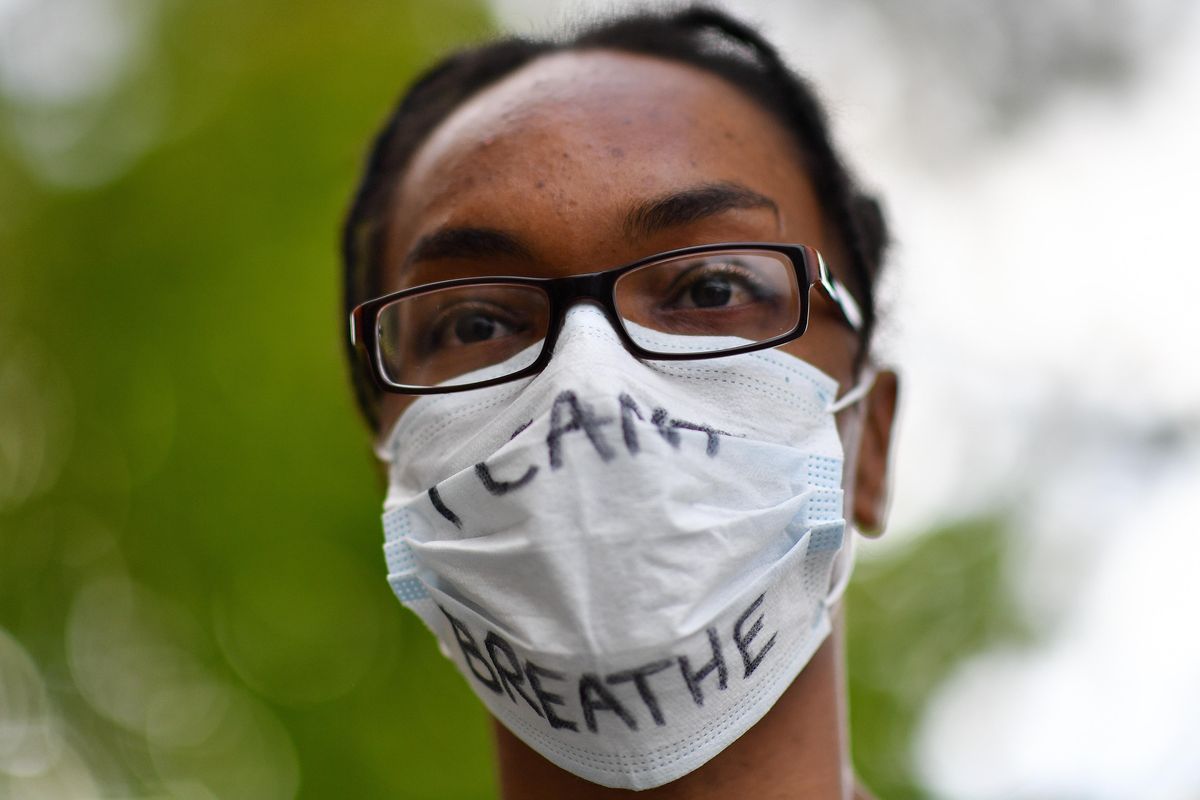Activists seek support for racial justice and Spokane police reforms

Spokane City Council President Breean Beggs expressed his support for protesters’ goals on Monday night, including a ban on the knee-to-neck restraint technique used on George Floyd.
At an informal meeting outside Spokane City Hall, about 50 people stood in a wide circle as event organizer and activist Renee White discussed ways to achieve racial justice beyond protests and marches.
White said the gathering was not a protest nor a demonstration, but a way to “educate ourselves and each other” about the larger, systemic issues surrounding the Black Lives Matter movement and recent protests.

As Beggs left a City Council meeting, White called to him to come speak to the crowd. Beggs said he had participated in Sunday night’s downtown Spokane protests and had noticed a major difference in tone between the recent demonstrations and last week’s events.
“I think the big distinction was that police adopted a different strategy,” Beggs said, drawing agreement from the audience. “They were with us on bikes, alongside us, not lined up in riot gear.”
Beggs told the crowd that the City Council had spent Monday’s meeting working on a list of potential reforms to begin working on within Spokane’s police department, including publishing all Internal Affairs investigations and making public records available online after a single request instead of requiring one request per individual.
Beggs also said the council would be looking at the use of force among Spokane police and “maybe changing things around there” but noted he could not comment on details of police contracts until they were up for a vote.
A city ordinance barring the use of the knee-to-neck restraint technique that contributed to George Floyd’s death while in custody of Minneapolis Police was among the reforms Beggs said he hoped to implement. He added that debate over the restraint’s use was “not a union issue” and he expected such an ordinance to find support with the rest of council members.
While there is still work to be done, Beggs said, Spokane police have “substantially reduced” use of force since the 2006 Otto Zehm case, in which a developmentally disabled man died after being improperly restrained by Spokane police officers.
“It’s important to give credit where it’s due and recognize what progress has been made,” Beggs said.
Several attendees pressed Beggs for a definitive statement on the use of tear gas and other displays of force during last week’s protests. Beggs said he had “hedged a bit” at first while waiting for more information but later saw video footage from the event and did not see justification for the use of tear gas.
After Beggs’ departure, White directed the discussion back to education and progress. She encouraged the audience, mostly made up of young people, to “do their research” and vote in Washington’s upcoming primary elections.
“I need you to vote, I need my youth to vote,” White said. “Your life depends on it. My life depends on it. If we don’t, they’ll just keep putting those same old white people in office, and nothing’s going to change.”
White emphasized her desire for Spokane protesters to present their demands in a “respectable, peaceful way” to better amplify their message. She has a meeting with council members on Tuesday, she said, and she wanted the group to turn up outside City Hall in support, looking their best.
“We can’t protest every single day because we have jobs, we have families,” White said. “But we can’t go home and do nothing. We have to be out here making our voices heard but letting our community know we ain’t going to be the ones breaking their windows.”